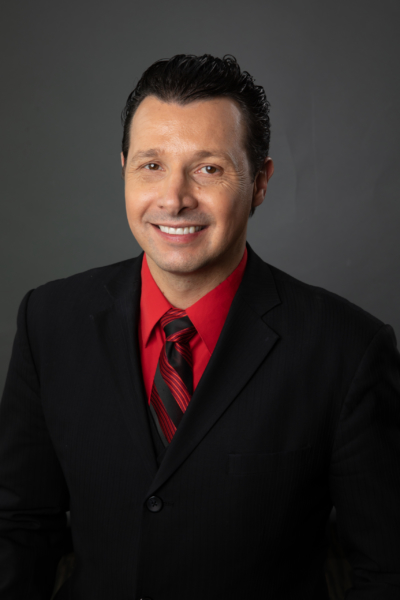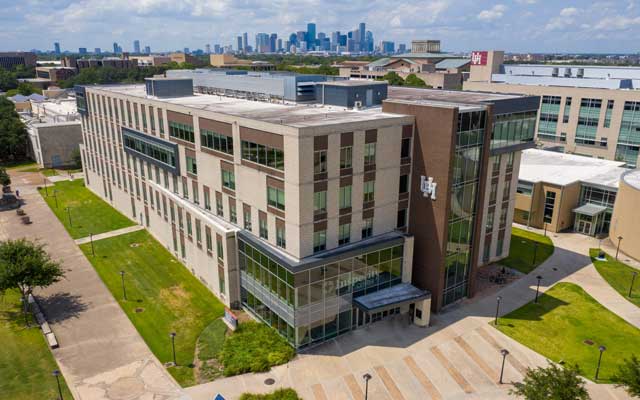
Bauer College of Business Students
University of Houston, C.T. Bauer College of Business
It isn’t hard to game an education ranking. Just cherry-pick the highest GPAs and SAT scores of incoming students. Do that and a program is nearly half-way home .If you want to find a school that really educates its students, measure the ground covered from when freshman start to where they finish as graduates. That’s teaching and support: Taking what you get and making them better.
On the surface, the University of Houston’s C.T. Bauer College of Business doesn’t stand out. The average ACT score is a 28, with only 35% of business majors making the top 10% of their classes. On top of that, 29% of these students are the first in their families to pursue a college education. However, a funny thing happens over four years. This spring, nearly 95% of Bauer business majors had landed a job – a 16% bump in a pandemic year. On top of that, Bauer grads were raking in nearly $60,000 to start.
It wasn’t just a good year to be a Bauer grad. In P&Q’s 2021 Undergraduate Business School Ranking, the school shot up from 54th to 33rd. Bauer’s recipe is rather simple to express and extremely difficult to execute: Give students lots of hands-on professional experience…and back it up with the same amount of support! You name it: entrepreneurship, non-profits, finance, technology management – Bauer has a program for that. That doesn’t include Bauer’s renowned Program For Excellence in Selling (PES), an introduction to the most in-demand (and lucrative) career in business.
“What made it unique was the real life sales we were making as students to managers, recruiters, and C-level executives,” wrote one 2018 grad in a survey from P&Q. “While being taught sales strategies and practices, we were also tasked with real quotas to meet and a number of role plays and cold calls to make. Every week, we would have 2 companies partnered with the program to come out and talk to us about their company and OpenDoc interviews for internships and full time opportunities. It was truly a once in a lifetime opportunity to experience as a college student.”
Such programming is bolstered by an uncompromising student-centered approach. For example, the school operates an Emerging Leaders Academic Success Program (ELASP). Starting freshman year, students earn points for achieving career readiness competencies. The reward: scholarship support! By the same token, the school has created a pathway for business majors to begin earning credits towards an MS degree before their undergrad years are up.
“We continue to strive to provide our students with an undergraduate business program that is not only relevant to industry, allowing students to graduate “job ready,” but that is also personally rewarding and fulfilling,” explains Paul A. Pavlou, Dean and Cullen Distinguished Chair Professor at Bauer.
That’s just the start. Here is the rest of the programs and services provided at Bauer to ensure business majors are positioned to excel in the classroom…and far beyond.

Dean Paul A. Pavlou
5 QUESTIONS WITH DEAN PAUL A. PAVLOU
P&Q: What are your undergraduate business program’s two biggest strengths and how do they make students better prepared for business once they graduate?
Pavlou: “The Bauer College story is underscored by two main threads — diversity and opportunity. When you look at our undergraduate business program, you will see very clearly how we have leveraged those two ideas to shape curricular learning and co-curricular experiences that make our students successful.
By virtue of our location in Houston, one of the world’s most diverse cities, we enjoy a community of students, faculty, staff, alumni and partners that is diverse not only in ethnicity but also in experience and perspective. The University of Houston is a global destination, with students coming from every corner of the globe, and our 858-acre park-like campus is surrounded by Houston’s Third Ward, which offers a rich cultural legacy that are just steps outside of the classroom, just minutes from downtown. Within our undergraduate student population in particular, we see a large number of students who are the first generation in their families to attend college, often from socioeconomically challenged backgrounds with a third fully employed while they attend college.
That makes it critical that we offer our students every possible opportunity to make the most of their Bauer experience. “Experiential learning” is more than an academic buzz word for us; it is embedded into everything we do at Bauer. By connecting our students to real-world learning and experiences, we are helping them improve their own economic futures as well as those of their communities.”
P&Q: Your placement jumped from 78.76% to 94.74% (during a pandemic year, no less). What types of programming through your career services, classroom curriculum, and extracurricular activities give your students an advantage in the marketplace?
Pavlou: “If we step back and look at our overall strategy related to career services and placement, we see that as the college has slowly shifted the culture from an urban, “commuter” school to one focused on internships and employment; our internship and employment outcomes have steadily improved each year. The steady increase in employment corresponds to a steady increase in internship participation rates over time.
We have made a number of decisions in terms of undergraduate student programming that contribute to this culture shift. A class that all Bauer students take early in their academic career is called “Connecting Bauer to Business,” a required course designed largely by our employers that introduces students to the common career paths chosen by Bauer students by introducing them to current and former students in different career paths, as well as employers who frequently hire Bauer students.
Through this class, students participate in recruiting events, structured networking, mentoring programs, real-world projects with corporate clients, and case competitions judged by corporate volunteers. In fact, all our undergrads do projects or case competitions that involve corporate feedback and judging, regardless of the major the select, a very unique opportunity for a university of our size.
This class has received multiple awards from the National Association for Colleges and Employers for technology innovation, diversity innovation, and being a “professional change maker.” More than half of the students say they join a student organization as a direct result of being in the class, and the number of student organizations at Bauer has doubled since the class’s inception in 2005. And, importantly, the placement rate has steadily increased from 38% when the class was developed in 2005 to 97% in 2020, as our culture has evolved to be more career-focused and networking-focused.
We have also added a variety of new recruiting programs to better engage employers, and we have proactively involved career services and experiential learning throughout the undergraduate degree program, including closer collaborations among faculty, industry, and career services. In fact, after the pandemic, we launched a program ensuring teams of new students are assigned a corporate mentor to meet and work with them regularly over the course of a semester to help the students adapt to college and connect both to each other and to the college’s networks in a virtual environment. We launched the program with 117 mentors and more than 900 undergraduates in Fall 2020, and we are continuing to expand and refine the program based on positive student feedback.
In addition, the college has leveraged its Houston location to become one of the most experiential programs in the country, with a number of different examples:
* Connecting Bauer to Business ensures all students do corporate-focused projects and case competitions in their first year at Bauer.
* The SURE Program lets students coach entrepreneurs to launch new businesses in their communities.
* The Program for Excellence in Selling coaches students to do real sales calls selling products and services to businesses.
* The Wolff Center for Entrepreneurship helps students start online businesses with real products as well as partnering with the university’s technology incubator to help students launch new businesses.
* MIS Project Management students are solving technology problems for area non-profits.
* Finance students are providing personal financial planning advice and education for the Third Ward.
* Accounting students are providing free tax help for underprivileged communities.
* Human Resources students work in the EEOC to solve local employment problems.
These are all programs that we have been building steadily over time, and given that solid foundation. When the pandemic hit in early 2020, we were able to quickly adapt to a virtual setting for career services and experiential learning initiatives, keeping our momentum going and demonstrating that the skills Bauer students garner in our programs make them extremely attractive in the job market, no matter the setting.”

Bauer College
P&Q: A third of your business majors are first generation students. What types of support does Bauer provide to these students to ensure their success?
Pavlou: “We consistently hear feedback from students and graduates that one of the things they value most about their experience is the support network provided by the college. From faculty and mentors to academic advisors and career counselors, we are committed to giving our students every opportunity possible to succeed. We know they are here because they want to be here and are motivated to make a difference for themselves, their families, and the community.
We have a number of initiatives in place to provide support and resources to our students:
* The Emerging Leaders Academic Success Program (ELASP) for Freshmen (a year-long program) and ELASP for Transfers (a one-semester program), is a non-credit co-curricular academic success program that assists students in their first semester at Bauer to adjust to college with workshops on study skills, time management, test preparation, financial literacy, and other topics. ELASP utilizes a “points” system to engage students, with a scholarship incentive for high achievers. This program also allows for early intervention to those students who may be underperforming academically or feel challenged by the academics.
* The Predictive Risk Level in EAB Navigate software used for academic advising and advising campaigns helps with special outreach to students at-risk or who are underperforming academically so advisors can assist them with academic coaching or connect them with the appropriate support resources. Some at-risk students may also be referred by faculty to the Advising Center in the Undergraduate Business Program (UBP). Another example is the Undergraduate Business Pathway program that assists FTIC (first-time-in-college) students transitioning into business majors. This program has been successful for the past eight years by providing advising and support from business academic advisors to non-declared business students early in their academic career.
* We also encourage students to join one of the 28 business student organizations based on majors and interest areas. Currently approximately 1,200 students are actively engaged in student organizations, some of which have outstanding chapters that have earned regional awards, as is the case of the Hispanic Business Student Association (HBSA), and the Bauer American Marketing Association (AMA) Chapter. These organizations offer another platform for the professional development of the students, including the completion of over 28,000 hours of community service annually by partnering with more than 50 Houston nonprofit organizations.
* We offer scholarship support to students based on merit and need, such as the Ted Bauer Undergraduate Business Scholarship (TBUBS), awarding annually 65 two-year full-ride scholarships to juniors and seniors. In addition to academic excellence, many of the students who receive Bauer scholarships are from under-represented groups, first-generation students in college, and many with financial challenges.”
P&Q: Over the past two years, you’ve climbed from 55th to 33rd in our newest undergraduate business ranking. What are some new and upcoming developments in your program that will enhance the business program for future business majors?
Pavlou: “We continue to strive to provide our students with an undergraduate business program that is not only relevant to industry, allowing students to graduate “job ready,” but that is also personally rewarding and fulfilling.
* Our Emerging Leaders Academic Success Program (ELASP) will serve as a model for a comprehensive “points” program to be rolled out in Fall 2021 for all undergraduates during their entire time in Bauer College, with points awarded for activities relating to the NACE (National Association of Colleges and Employers) career readiness competencies.
* We will begin offering an Online BBA starting Fall 2021, that will include in-state tuition for out-of-state students.
* We also have a proposal in process for an accelerated BBA/MS pathway, in which qualified undergraduate students are allowed to take up to six credit hours of graduate courses that count towards any of our MS programs and also toward the completion of their BBA. In doing so, these students would shorten their MS degree coursework to needing only 24 additional credit hours for its completion. We think this would be extremely valuable for our undergraduate students looking either to add depth at a higher level in the same functional area they pursued as a major or minor at the undergraduate level, or to add breadth to their business education by pursuing an MS business program in an area other than their undergraduate major or minor or specialty track in their major.”
P&Q: What part of the Bauer undergraduate business experience do you wish more prospective students knew about? Why is that so important to their development as professionals?
Pavlou: “Within our undergraduate business program, there are several “hidden gems” that can add so much value to the experience for students. Going back to the first question, we believe that Bauer College is uniquely positioned to provide students with a transformational experience both personally and professionally, and that in turn has the potential to transform communities through job and wealth creation.
* For freshmen, Bauer Honors is a specialized honors program that integrates the business degree with the UH Honors College, providing small, discussion-oriented classes, personalized academic services and extra-curricular engagement activities that give Bauer Honors students a first-rate education and a competitive edge in the job market.
* For transfer students, Houston Guided Pathways for Success (GPS) is a consortium of area community colleges and four-year schools providing Academic Maps for students to follow. As an active part of Houston GPS, Bauer College has made curricular changes to the BBA lower-level requirements to align with the Texas Higher Ed Coordinating Board Business Administration and Management Field of Study requirements, adding transparency for transferring courses and streamlining the curriculum for greater flexibility for electives to customize the degree.
* We continue to provide and expand the portfolio of options with specialty tracks for the various majors, with a focus on major industries and employers, from the energy industry to the growth areas of heath care and business analytics, offering experiential learning and internships for credit.
* In addition to academic preparation, we offer a wide variety of leadership development programs, such as the Ted Bauer Leadership Certificate Program, that focus on soft skills essential for career success. In fact, over the last year, our Leadership & Engagement team has hosted over 100 virtual events for students, in an effort to maintain the level of leadership development that is a standard for Bauer College, even in a socially distant and remote setting.”











Questions about this article? Email us or leave a comment below.